Science
Which New High School Course Should You Take with Florida Virtual School? Take This Quiz to Find Out!
By Elizabeth Jones on June 7th, 2023

Choosing courses for the next school year is exciting—but can also be a little bit stressful. Thoughts like, “What courses should I choose?” or “Which courses will help me reach my goals?” are probably on your mind. But at least with Florida Virtual School (FLVS), you know you won’t have to dress out when you take PE!
Continue readingWhat’s New: Meteorology Honors
By Florida Virtual School on March 19th, 2021
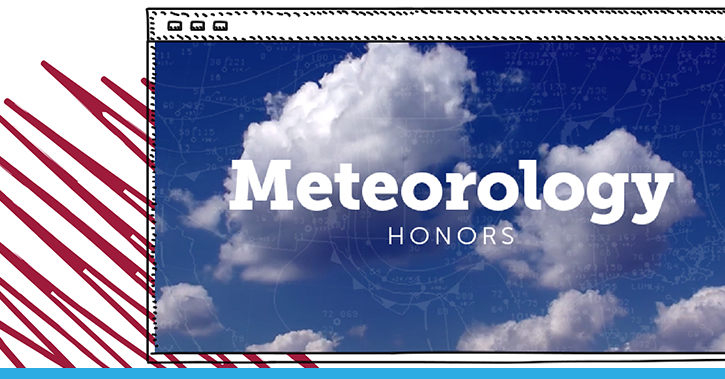
Weather can seem unpredictable, but with historic data and powerful technology, professionals are able to provide daily forecasts and severe weather updates to people around the world within minutes. These updates may come in handy when scheduling your next beach day or picnic, but they are also crucial for professionals in industries like transportation, construction, and agriculture when making decisions about future and daily operations.
Continue readingFLVS Student Receives Full Scholarship to Princeton
By Florida Virtual School on February 17th, 2021
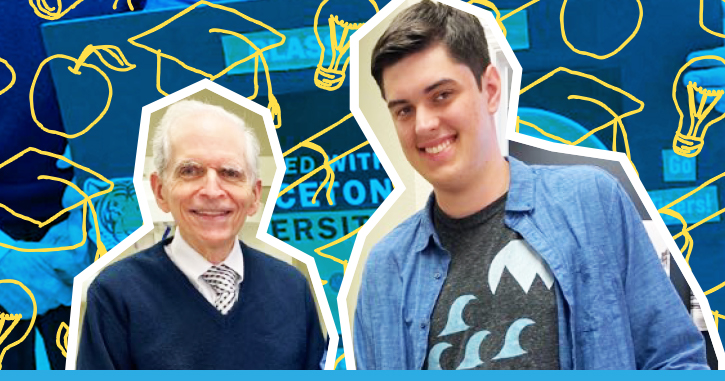
Of 3.2 million high school graduates in the United States, 2.1 million (66.2 percent) will enroll in college. Princeton University, a private Ivy League research university in New Jersey, offered admission to just 1,823 students in 2020. FLVS Full Time student Matthew Ciccone was not only accepted, but also received a full four-year scholarship to the elite school.
Get to know Matthew in this interview with the FLVS Full Time Class of 2021 graduate!
Continue readingStarliner Launch Brings Learning to Life
By Guest Blogger on February 10th, 2020
This post was written by Elizabeth Jones, a member of the FLVS social media team.
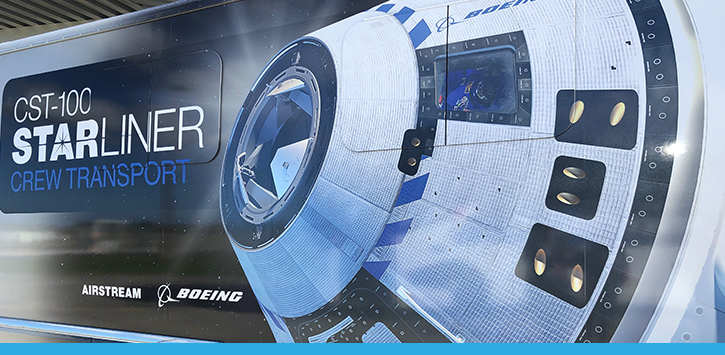
I recently had the opportunity to watch Boeing’s CST-100 Starliner make its debut flight to the International Space Station. This was a great opportunity to see the impacts of career and technical education in action! Continue reading
Following Science in Space: NASA’s Asteroid Mission
By Florida Virtual School on February 27th, 2019
Love space science? Follow us on Instagram for live STEM events throughout the year, including the SpaceX Crew Dragon test flight on March 2, 2019.
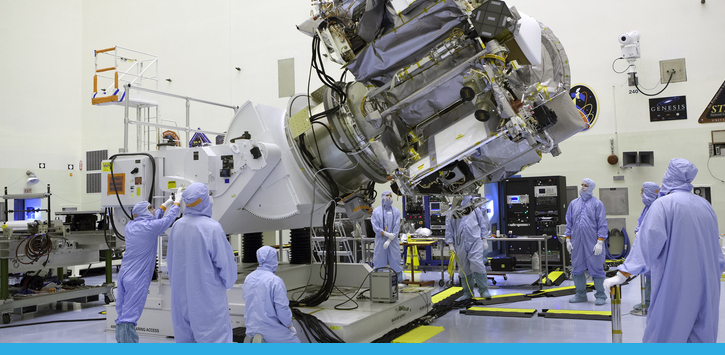
Two and a half years ago on September 8, 2016, I was able to witness the launch of OSIRIS-REx to share with our school community.
I’m sure you’re wondering what that means, right? OSIRIS-REx is a NASA asteroid study and sample return mission. OSIRIS-REx stands for Origins, Spectral Interpretation, Resource Identification, Security Regolith Explorer. Its main goal is to obtain a sample of at least 60 grams of rock from an asteroid called Bennu, a near-earth asteroid with lots of carbon in it. Now if you’re wondering exactly how much 60 grams is, one candy Skittles is approximately 1 gram. Imagine 60 of those and that’s how much of Bennu we will be bringing back to the Earth. And wait for it…it will take seven years before the mission is completed!
During our live lessons for Earth Space Science, we’ve been discussing current science events and all things space – including updates from Bennu. Continue reading
FLVS Follows Science on Its Way to Space
By Guest Blogger on April 30th, 2018
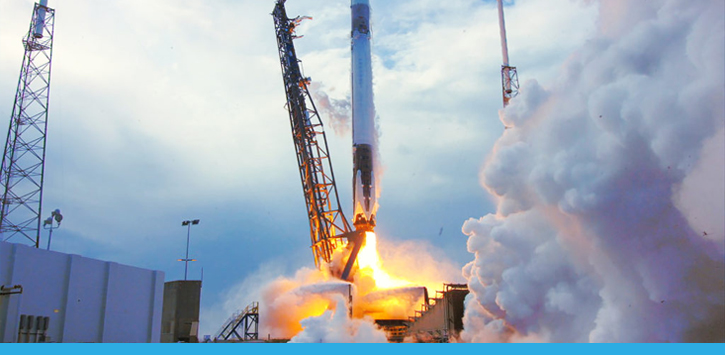
On April 2, 2018, the SpaceX Falcon 9 rocket blasted into space with the Dragon spacecraft – sending fascinating science experiments and supplies to the International Space Station.
FLVS was invited to share the experience with our students and followers through social media, including a behind-the-scenes tour of NASA facilities at Kennedy Space Center prior to launch. Continue reading
Practical Problem Solving
By Guest Blogger on December 15th, 2017
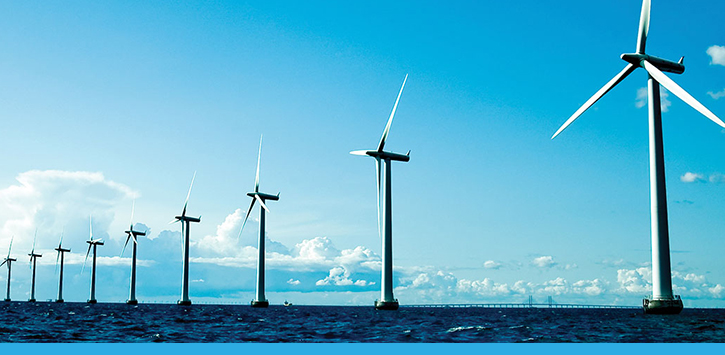 It’s happened to the best of us: you push the power button on the remote and nothing happens. What’s the problem? Does it need new batteries? Is the TV unplugged? Is the power out? To figure it out, you need some problem-solving skills.
It’s happened to the best of us: you push the power button on the remote and nothing happens. What’s the problem? Does it need new batteries? Is the TV unplugged? Is the power out? To figure it out, you need some problem-solving skills.
Problem-solving skills are important in our everyday lives, our careers, and in learning. Problems may be frustrating, but they can also be opportunities. By helping our students develop strong problem-solving skills, we can help them look at problems differently, do things in a different way, and think critically. Continue reading
Aliens and Explosions
By Guest Blogger on March 30th, 2017
This post was written by FLVS student Sarah Weyand about her award-winning research in astrophysics.
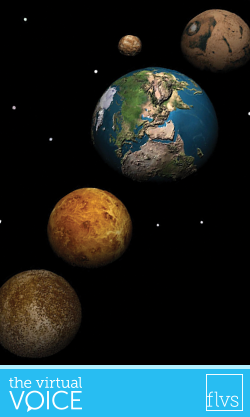 My science fair journey began about a year ago.
My science fair journey began about a year ago.
I was approached by a Harvard graduate who wanted to mentor a high school senior in an astrophysics and computer science research project.
I knew nothing about astronomy and I didn’t know a single programming language, but I love space and I plan to major in computer science in college. Naturally, I said yes. This project has taken me to the Science Talent Search, the Indian River Regional Science and Engineering Fair, and, now, the State Science Fair.
My project is titled Aliens and Explosions: How Supernovae Affect the Habitable Zones of Exoplanets.
The purpose of the project is to calculate the percentage of exoplanets, a planet that does not orbit our Sun, that would no longer be in the habitable zone of their host star due to a supernova, the explosive death of a massive star. Continue reading
How Career & Technical Education Changed My Life
By Guest Blogger on February 21st, 2017
 In honor of Career and Technical Education (CTE) Month, I would like to reflect on the influence CTE has had on my life – even though I didn’t realize it until a decade later.
In honor of Career and Technical Education (CTE) Month, I would like to reflect on the influence CTE has had on my life – even though I didn’t realize it until a decade later.
As a teenager, I wasn’t a big fan of school. Classes, homework, and way too much science! I couldn’t stand it.
However, every time I left my rural campus to assist nurses at the local hospital, I felt the thrill of escape and the fun of doing something new. So, for all the wrong reasons, I enrolled in my high school’s nursing program and was quickly on my way to plenty of time not in school. The perfect plan!
It didn’t take long for me to learn my first CTE lesson: there is much more to a nursing program than wearing scrubs and getting out of class. I’d signed up for a daily, three-hour block of anatomy and physiology, as well as an introduction to nursing skills. Yep, my brilliant plan to escape school somehow locked me into three hours of science a day. Continue reading
FLVS Attends GOES-R Satellite Launch
By Florida Virtual School on December 7th, 2016
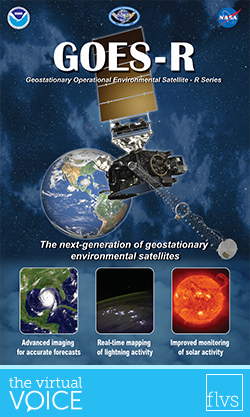 On Saturday, November 19, I had the privilege of watching the GOES-R weather satellite launch from Kennedy Space Center.
On Saturday, November 19, I had the privilege of watching the GOES-R weather satellite launch from Kennedy Space Center.
Now you may be wondering what GOES-R stands for. It’s the Geostationary Operational Environmental Satellite, a satellite system that orbits the earth and sends data back to National Weather Service computers. The R indicates what number or version the GOES satellite is on, so there have already been versions A-R. GOES-S is slated to launch next year and is the twin to GOES-R.
Of course, weather satellites get launched all the time, so why would this one be any more special than the others?
Well, right now we receive images of satellite scans every 30 minutes or so. The GOES-R satellite will provide data at least every five minutes, and in some circumstances every 30 seconds! So not only will it be five times faster than current weather satellites, but it will also gather three times more data and it will have four times better resolution. Continue reading
